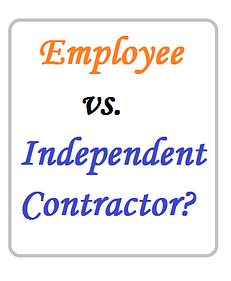
Usually around this time of year we start getting worried phone calls from families confused by the household employee taxes or the "nanny taxes." We pulled together some more of the frequently asked questions our tax experts are getting in time for April 15th.
Q. My domestic (elder caregiver, housekeeper, nanny) wants to be treated as a "contractor." Can I do that?
The IRS has strict definitions of employees and independent contractors; a domestic employee is a worker whose services, hours and obligations are directeded by the employer. A contractor sets their own schedule, performs the work wherever they choose and provides their own equipment. For household workers - including nannies - a family defines the work to be done and sets the work hours, and so is obligated for all payroll tax filings. Generally, a domestic worker in your home is not a contractor, but an employee who you pay directly and for whom you must file payroll taxes.
Read more about payroll taxes for your household employee here.
Q. How are household employee payroll taxes paid?
Most household employees are required to pay Federal employment taxes including Social Security tax, Medicare tax, withheld Federal Income Tax (if applicable), and the Federal Unemployment Tax. They are also likely to file State unemployment taxes. It is the employer’s responsibility to collect these taxes out of their employee’s gross pay, and contribute employment taxes out of their own funds. Many families negotiate personal arrangements with their domestic workers; some employers agree take on the additional cost of employee Social Security and Medicare taxes as a benefit to their employee while others deduct these taxes from the employee's gross pay. In either event, the family pays both employer and employee Social Security and Medicare taxes directly to the IRS.
It is important to note that the Federal household employment taxes are part of your personal Federal Income Tax Return, which you sign under penalties of perjury.
View our comprehensive video on how to calculate household employment taxes.
Q. What may happen if I don't pay the employment taxes for my housekeeper or home health aide?
In short, failure to report domestic wages is tax fraud and may result in penalties of perjury. Fees related to becoming current with back taxes can significantly reduce an elder’s estate and delay distribution of that estate.
There are significant benefits to an employee when they are paid legally. Most important for elder caregivers, they will qualify for unemployment benefits while they search for another position if an employer dies or is moved to a senior care facility and their position is terminated.
To get more information about becoming current with any unpaid back taxes, click here.

